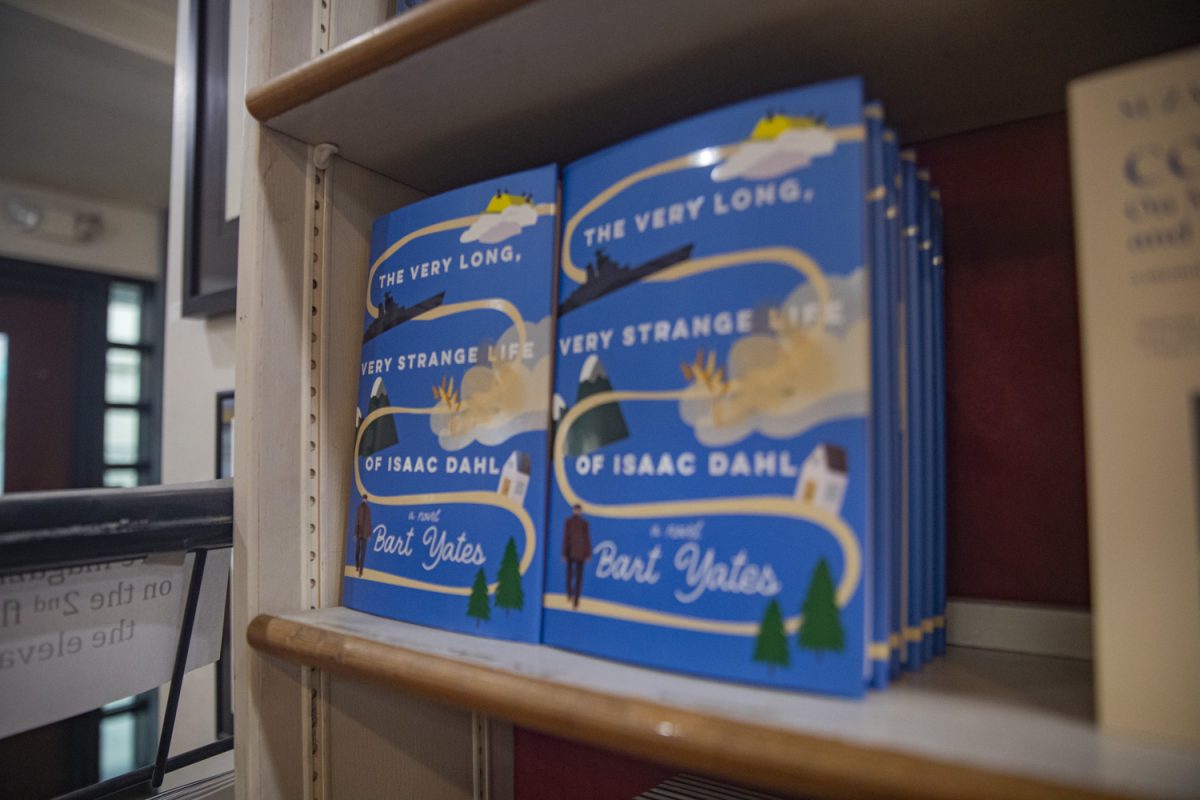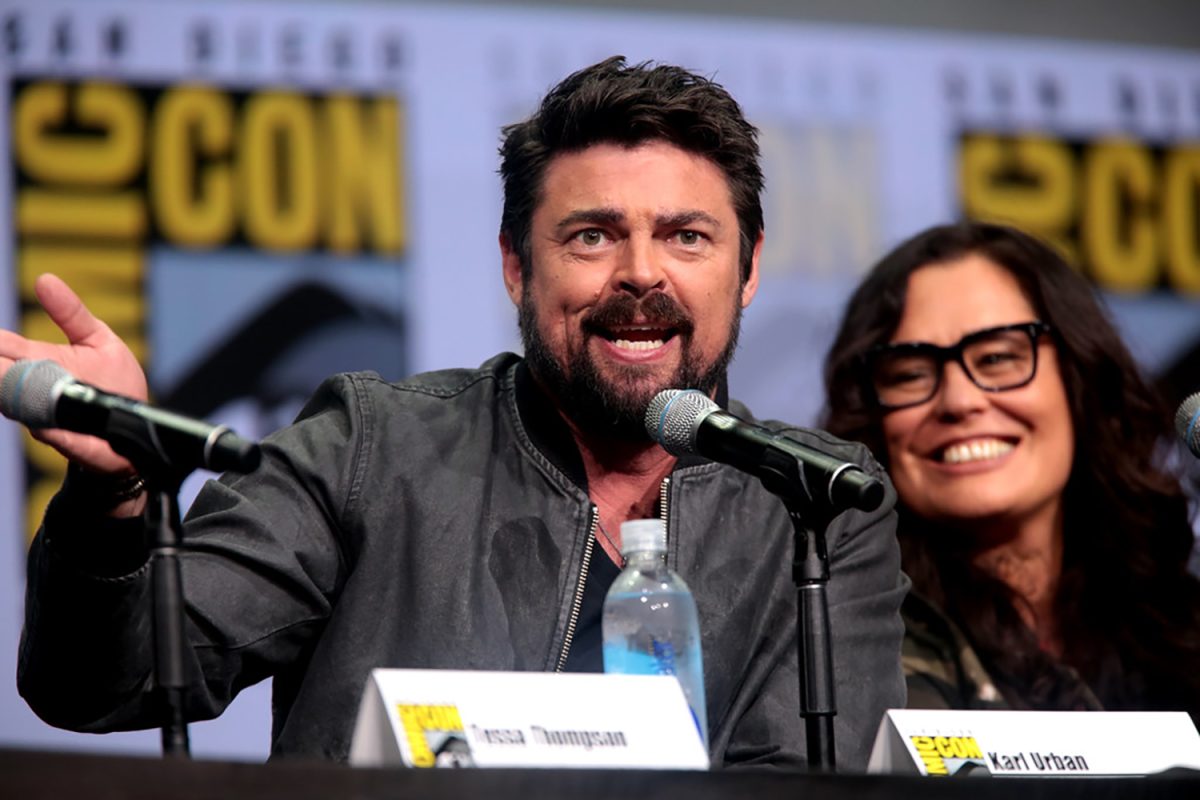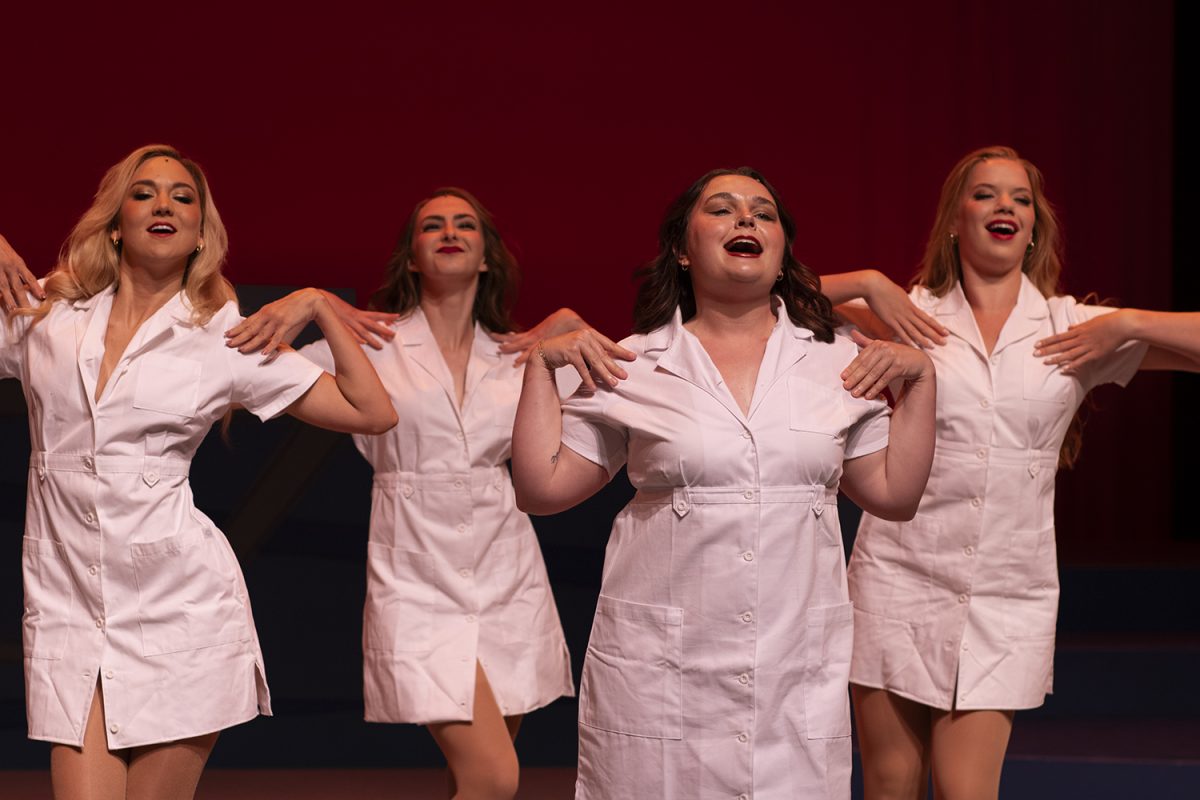Each of us has a story. For all the times we’ve heard "Oh, something like that happened to me once," we all have at least one that is definitively ours. Tales such as these can be heartbreaking, humorous, or quite often both.
Since 1997, "The Moth Radio Hour" has set out to bring people from every shade of existence to the stage so they can offer these pieces of their lives to the ears of the world.
At 7:30 p.m. Friday, Jim Bennett, Janice Josephine Carney, Cole Kazdin, Jeremy Orvik, and Stephanie Summerville will take the spotlight at the Englert Theater, 221 E. Washington St., to tell their stories in Public Radio Exchange’s "The Moth," hosted by Iowa Public Radio.
"The thing about people is that when you sit down and talk to them, there’s always something universal, but there’s also always something brand-new," said Maggie Cino, the director of the event.
The beautiful thing about "The Moth" is that it has striven to keep people talking continually. It seeks out professionals as well as everyday folk, establishing a theme for each show and giving the performers free rein. For Friday’s event, the theme will be "Heart of Darkness."
"Ninety-five percent of the time, people come in with just the idea [for their stories]," Cino said. "We work with the storytellers to make sure their stories have fully developed arches and aren’t just unstructured anecdotes. Everyone’s talked to that person who tells a story at a party and doesn’t know which parts to cut out. We want to avoid that."
There is little fear of tedious storytelling from this show with its practiced director and a queue made up of writers and performers.
"The thing I love the most is that these are real, powerful, emotional life stories. The fat is cut out, it’s a pure emotional delivery. said Peter Aguero, the host of the show.
He admits that it takes a certain kind of person to be able to hear some of the more wracking stories for the first time and be able to go out on stage and speak again. Nearly every story he’s heard hosting "The Moth" has hit him with an emotion he had never quite expected, he said. But he noted that he uses those raw feelings to be an effective host.
"I purposely don’t prepare anything most of the time," he said. "I always feel I work better when I don’t know what’s going to happen so that I can be surprised with the audience and experience it alongside them. For me, it’s my job to verbalize the feeling in the room."
Given the variety in the five storytellers, the potential for passion and pungency is limitless.
While none of the performers appearing in the show call Iowa home, location was still considered by the performers and those working with them.
"I was part of the team that helped bring marriage equality to Iowa," said Bennett, a winner of Moth GrandSLAM. "My story takes place on RAGBRAI where civil rights, the church, and fine Iowan cuisine intersect. I think it was a logical fit to bring it to the state where the story took place. Iowans are smart and funny, a perfect place for ‘The Moth.’ "
Kazdin, another "Moth" veteran, is also an Emmy-winning producer, a three time Moth GrandSLAM champion, and a survivor of amnesia. She was asked by "The Moth" to tell her specific story at Friday’s show.
"I was so thrilled to be invited," Kazdin said. "Anytime my friends at ‘The Moth’ call, I’m there, It’s a special group of people. Even when a group of storytellers who have never met before come together, there’s somehow this common thread and a real community."
Having performed at "Moth" events in the past, Kazdin describes the setting as an "intimate rock concert."
"[It] sounds like an oxymoron, but that’s really what [‘The Moth’] feels like," she said. "A group of people sharing very personal stories, with hundreds or thousands of people all at once. It attracts a unique audience too — it feels like we’re all in it together."
Given the stories being told, the audience members will hardly be able to say emotions will be lacking.
"Initially, [I went to ‘The Moth’] sort of on a whim," Orvik said. "I called and left a blurb and didn’t hear back until eight months later, by which point my story had grown deeper and more significant."
Orvik had called the show in hopes of telling the story of coping with his mother’s deteriorating condition. By the time the people at "The Moth" expressed interest in his story, his mother had passed away.
"At some level [in wanting to perform], there’s a degree of ego. You want to tell a story and hope it resonates," he said. "The experience had deep meaning to me and, hopefully, will extend to others."
Of all those appearing on stage, Orvik has perhaps the least experience speaking in front of an audience, having come from a medical background.
"I’m a doctor; I’m not a performer," he said. "I’m not naturally inclined to be emotionally open. Getting through this is an emotionally challenging experience. I just hope I can give my story the respect I feel it deserves."
Regardless of occupation or experiences, all the stories and their tellers have the key trait needed in crafting a resonate story: They are humans sharing human experiences.
"We have this idea that we’re connected with Facebook and Twitter and cell phones, but we’re not as connected as we think we are," Aguero said. "This is one night for everyone to sit down, and turn off their phones, and be in the moment, and listen. It’s not a passive experience, it’s an actively emotional one. It might be about one person’s experience, but it can relate to 500 people in the audience. ‘The Moth’ is like a catalyst for people to connect; it’s unique, and terrific, and beautiful."






